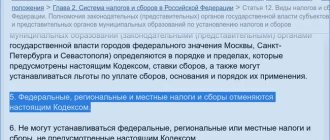Have you been refused account opening or service? Perhaps the company is blacklisted by banks. Find out what to do and why this could happen in this article.
Let's look at the following questions:
- What does a bank blacklist mean and why can you be included there?
- What are the risks of being blacklisted?
- How do you know if you are in it?
- How to get out of bank blacklists?
What is a “black list”
A bank's blacklist is a database of clients whom banks refuse to service because they are suspected of committing fraudulent transactions or breaking the law. The information on this list is strictly confidential. Personal information from it is not transferred to other persons.
Each bank has its own criteria for blacklisting, so determining the reason is quite difficult. In addition, an unreliable client may even end up on several lists depending on what services the bank provides to him or how the bank and the client interact.
A client can be blacklisted by the bank not only if violations occur. Even those who are suspicious of the security service or bank specialists can be included in it.
For example, a borrower regularly takes out loans and repays them within a short period or enters into constant disputes with the bank over some aspect. Such clients can also be included in the database. Most likely, the next time you apply, the bank will refuse to issue a loan, because the lender’s task is to make a profit, and it is unprofitable to cooperate with such a borrower. And banks also prefer not to get involved with those who delve too deeply into the essence or create conflicts.
Blacklist options
Clients can end up on different blacklists:
- Intrabank. This database contains information on those clients who violated their obligations or aroused any suspicion among bank employees. Staying on such a list for a long time leads to refusals of loans or other services within the financial institution.
- List of information from the bailiff service. It includes citizens from whom debt has been collected in court. Most banks verify their clients against this database.
- Credit Bureau Reports. They contain information from credit institutions about all individuals and companies that have ever taken out loans. Based on this data, the borrower's credit rating is formed. If debts and arrears arose, then all this information will be visible in the BKI.
- Rosfinmonitoring blacklist. It includes all violations that are related to Law 115-FZ “On the legalization of proceeds from crime.” Data on suspicious transactions comes from all banks to Rosfinmonitoring, and from there to the Central Bank of the Russian Federation. After consolidating all records, the Central Bank returns the final black list to all banks in the Russian Federation. Information is updated daily.
A client can be on only one or all lists at the same time.
Why is the account blocked?
Why did the bank block or suspend the transaction?
In accordance with the provisions of Article 7 of Federal Law No. 115-FZ, the entities named in Article 5 are obliged to:
- apply measures to freeze (block) funds or other property, except for the cases established by paragraph 2.4 of Article 6 of this law,
- suspend transactions with funds or other property, with the exception of transactions for crediting funds received to the account of an individual or legal entity, for five working days from the day when the client’s order to carry it out must be executed, if at least one of parties is:
- a legal entity directly or indirectly owned or controlled by an organization or individual, in respect of which measures have been taken to freeze (block) funds or other property in accordance with subparagraph 6 of paragraph 1 of this article, or an individual or legal entity acting on behalf of on behalf of or at the direction of such organization or person;
- an individual carrying out a transaction with funds or other property in accordance with subparagraph 3 of paragraph 2.4 of Article 6 of Federal Law No. 115-FZ.
In addition, by a court decision on the basis of an application from the authorized body, transactions on bank accounts (deposits), as well as other transactions with funds or other property of organizations or persons in respect of which have been received in accordance with the procedure established in accordance with Federal Law No. 115-FZ information about their involvement in extremist activities or terrorism, or legal entities directly or indirectly owned or controlled by such an organization or person, or individuals or legal entities acting on behalf or at the direction of such an organization or person, is suspended until such a decision is reversed in accordance with the legislation of the Russian Federation.
How individuals get blacklisted by a bank
The main criteria for blacklisting a bank:
- Overdue loans, refusal to fulfill obligations under a comprehensive banking service agreement.
- The presence of unpaid debts on taxes, alimony payments, fines, and utility bills.
- Having a criminal record, especially in the area of economic crimes.
- Providing false information, including documents containing incorrect data.
- There are suspicions of participation in any fraud.
- Currently or previously in bankruptcy.
- The presence of an outstanding court decision to collect debt from the client.
- Restrictions adopted in relation to the client by the court, bailiffs and other authorized bodies.
- Incapacity or mental illness.
- Aggression, inappropriate behavior, visiting bank offices while drunk, under the influence of psychotropic or narcotic substances.
Any of these reasons will result in the client being listed in a separate database. Each bank creates its own extended list of criteria. Some financial institutions can add to stop lists for the slightest offense, others - only after repeated violations. In a number of companies, those clients who have “corrected themselves” and do not repeat mistakes will be removed from the list; in others, they will not give any concessions.
Also, the client can be blacklisted at the very beginning of cooperation if he has not passed the test. Each financial institution has its own regulations on how to evaluate a citizen, including by his appearance. Bank verification can be tricky when the client is given the imaginary right to choose: tell the truth or lie. For example, they create a situation in the form of an accidental mistake by a bank employee; if the client does not correct it and decides to provide false information, he will be blacklisted. They can also conduct psychological tests to identify lies in any words of a citizen.
Reasons why a bank may recognize a company or individual entrepreneur as dishonest:
- The amount of taxes and other payments to the budget is less than 0.9% of the debit turnover, then the account will most likely be blocked;
- The account does not pay salaries to the client's employees;
- Personal income tax and contributions or the salary itself does not correspond to the average number of employees;
- The wage fund is set at a rate below the subsistence level;
- Personal income tax is transferred, but insurance premiums are not paid;
- There is no balance in the account or it is small compared to the volume of regular transactions;
- Payments do not relate to costs inherent in the activity;
- There is no connection between the reasons for crediting money to the account and their subsequent debiting;
- There was a sharp increase in account turnover;
- There are no payments usual for business: for example, rent, utilities, purchase of office supplies, etc.;
- Funds are credited to the account from counterparties under contracts with the allocation of VAT and are almost completely written off by the client in favor of counterparties for objects not subject to VAT. The bank will look at its other clients who are engaged in similar businesses. And compare what happens to them with VAT in similar situations;
- The bank monitors the client’s device identifier to ensure it matches the device identifiers of other bank clients, including those clients whose accounts were closed as part of the implementation of “anti-legalization” measures. Matches are checked: IP addresses, MAC addresses, phone numbers, etc.;
- The ratio of the volume of cash received per week to turnover on bank accounts is 30% or more;
- Less than two years have passed since the date of creation of the legal entity;
- The client's activities, within the framework of which money is received into the account and debited from it, do not create obligations to pay taxes. Or the tax burden is minimal;
- Money comes to the account from counterparties through whose bank accounts transit transactions take place;
- The receipt of funds from the counterparty to the client’s account occurs with the simultaneous receipt of money from the same counterparty to the accounts of other clients;
- Money goes to the account in amounts, as a rule, not exceeding 600 thousand rubles;
- Withdrawal of cash regularly: as a rule, daily or within a period not exceeding three to five days from the date of receipt;
- Cash is withdrawn in an amount not exceeding 600 thousand rubles, or in an amount equal to or slightly less than the daily limit established by the bank;
- Cash is withdrawn at the end of the operating day, followed by withdrawal at the beginning of the next operating day;
- The client has several corporate cards, and they are used primarily to carry out transactions to receive cash.
If there are matches according to the above criteria, the company or individual entrepreneur may be classified as a high-risk company and take measures aimed at minimizing this risk. Almost everyone fits one or more of the criteria from the list below, and one can question the reliability of any company. Therefore, be careful and careful! Do not ignore the bank's requests for documents.
How to get off the list of unreliable clients
It is very difficult to get out of a bank's blacklist. The problem is that the information in the databases is confidential; the bank may not notify the client about inclusion in the list. Bank employees will not always explain the reason for being included in the list of unreliable persons. And even if it is possible to eliminate the reasons why the client was included in the stop list, it will be difficult for him to restore his business reputation. Most likely, a note will be made in the personal data about the elimination of errors, but they will not remove it from the internal bank register.
Sometimes blacklisting does not directly affect the company or individual. Some clients do not even suspect that they are among the unreliable ones. For example, when registering a debit, salary, pension card or deposit, there will be no restrictions. Most often, difficulties arise when applying for loans.
If loan refusals follow one after another, there is a high probability that the banks have blacklisted the client. To find out for sure, request a report on the borrower's credit history. Twice a year, citizens of the Russian Federation can receive this information free of charge. One of the two times is a paper report. If you need information more often, you can request a report for a fee. This service is provided by various qualified companies. The number of paid requests is not limited; they can be submitted at least weekly.
To receive a report in electronic or printed form, contact the Credit History Bureau directly or through government services. Please note that information about one citizen or company can be stored in several BKIs. You can find out which of them exactly contains information through the Central Catalog of Credit Histories. After this, you can submit requests to specific BKIs and collect information together.
From the reports it will become clear whether everything is in order with your credit history, whether there are any debts or arrears. If they do not correspond to reality, you can apply to correct the erroneous data.
Correcting the borrower's credit history
If your credit history is damaged due to the fault of the borrower, you will have to correct the situation yourself:
- Apply for a loan for a smaller amount than was included in the rejected application or apply for a credit card or installment card. Banks approve such loan products more readily than cash loans. It is best to contact the bank that receives your salary on the card.
- Fulfill your obligations with high quality. Avoid delays, make sure that there is enough money for the monthly payment and interest repayments, deposit money in advance, and not on the last day.
- After repaying the loan, the data will be reflected in your credit history. The negative rating will rise. In this way, you can restore the reputation of a reliable client and earn the trust of banks.
Correcting your credit history
| Max. sum | RUB 300,000 |
| Bid | 30,9% |
| Credit term | Up to 18 months |
| Min. sum | RUB 4,999 |
| Age | 20-85 years |
| Solution | 1 day |
You can also use the alternative option - just wait. Information from your credit history will automatically disappear after 10 years. But during this period there should be no debt obligations to creditors or relationships with bailiffs. However, a zero credit history does not guarantee that upon expiration of the term, banks will agree to cooperate.
What to do if you are included in the list under Federal Law-115
If a client has aroused suspicion or violated Law 115-FZ, he will be blacklisted by the Central Bank of the Russian Federation. It is much more difficult to exit from it than from the database of unreliable clients within the bank. First, find out the reason for blacklisting in the servicing bank or in the one where transactions were refused. Write an application and collect documents that will show that the refusal is unfounded.
The bank will review the submitted documents, and after that there are 2 possible scenarios:
- The bank will cancel the refusal and send the information to Rosfinmonitoring. There they will take into account the client’s data and remove the citizen from the black list, which he was included in according to law 115-FZ.
- The Bank recognizes the grounds for refusal as significant . If the client does not agree with this decision, he can file an appeal with the Central Bank, where they will conduct an additional investigation. If, upon re-examination of the client’s request, the client is found to be in good faith, he will be removed from the blacklist within a few months.
After amendments were made to Federal Law 115, banks were required to provide explanations to all clients who were blacklisted. Therefore, the easiest and most reliable way to get out of it is to find out what operations and actions raised doubts in the bank and correct them. After this, it is much easier to avoid re-entering the database of unreliable clients.
Appealing the bank's actions
Complaint to the Central Bank?
- Compose the text of the appeal, indicate when you contacted the bank, write its address and time of application;
- Write the name of the employee with whom you communicated, his last name, first name, patronymic and position;
- Describe the current situation in as much detail as possible in free form;
- Indicate under which articles of the law your rights were violated;
- Indicate that you want to hold bank employees accountable or take action against a financial institution;
- You can submit a complaint to the Central Bank in 2 ways: In writing and electronically.
Going to court.
Demand that the bank's actions be declared illegal. According to Art. 65 of the Arbitration Procedure Code of the Russian Federation, the bank is obliged to prove that it had grounds for suspending or refusing to carry out operations on behalf of the client. If your transactions are completely legal and you have provided all supporting documents, then most likely the court will side with you and oblige the bank to unblock your current account.
Additional liability of the bank: losses, interest for the use of other people's funds and legal expenses (Articles 15, 395 and 856 of the Civil Code of the Russian Federation). Why is this necessary? This encourages the credit institution in its subsequent activities not to rush to conclusions and to consider all the arguments before making decisions.
How to avoid getting blacklisted
Since the blacklisting criteria cannot be listed in full due to confidentiality, it is very difficult to completely exclude inclusion in the stoplist. But the risks can be minimized:
- Learn the main reasons for blacklisting and avoid them.
- Don't try to be the ideal client. Average borrowers who conscientiously fulfill their responsibilities are the most trusted by banks.
- Work with a bank account, regularly replenish it, conduct transactions or maintain a certain amount of money on it. You can use the services of several banks, the main thing is that the movements on the accounts are visible, on the basis of which the bank will have an idea about the client.
- Don't lie to the bank in an attempt to embellish your financial situation.
- Before visiting the bank, pay attention to your appearance. Some offices will not even be allowed in if the security guard questions the client’s clothing or condition.
- Adequately assess your ability to repay loans. Monthly payments should not exceed 30% of wages. If the load is higher, the probability of delay is higher, which means a deterioration in your credit history.
- When closing a loan, request a certificate of full repayment of the debt. Violations and penny debts can arise due to the client’s usual carelessness. For example, the last payment according to the schedule was several rubles higher, but this was missed. As a result, a few rubles will turn into several thousand, taking into account fines and penalties.
- Read the agreement carefully to know your obligations and the rights of the bank that issues the loan.
- Try not to act as a co-borrower or guarantor. If the main borrower turns out to be unscrupulous, his responsibilities will be transferred to you. After this, your credit history may be included in the list of questionable ones.
- If you have problems paying off your loan, refinance or restructure it. The main thing is to solve the problem, and not refuse to fulfill obligations.
If you follow these recommendations, the bank will have fewer grounds for blacklisting. And if such a situation occurs, you can be sure that it most likely happened due to an error.
What happens if the company is blacklisted
Organizations are blacklisted by the bank if they violate Federal Law No. 115 and are suspected of laundering income and promoting terrorism. If the bank has doubts about the transactions being carried out, the employee suspends movement on the client’s accounts until all the circumstances are clarified. According to this law, both legal entities and individuals are checked. Violations of this rule result in any bank client being blacklisted by the Central Bank of the Russian Federation.
Companies may be refused to issue a card, open an account, or perform a number of other operations that relate to servicing legal entities. But the client is not blacklisted without additional verification and an attempt to clarify the situation. To begin with, bank employees will request additional confirmation.
Causes
Operations that may raise doubts among a bank employee and result in blacklisting:
- Registration of a new legal entity with high turnover from the very beginning of the company’s activities. There may be a completely legal explanation: the business was donated or inherited.
- A contract that does not correspond to a direct activity. For example, a law office pays for building materials. If she makes it clear that she is building a new office building, doubts will be dispelled.
- Settlements with companies that are blacklisted. As a rule, such transactions are subject to amount limits or other restrictions. If more serious concerns and reasons for verification arise, the sender of the funds may also be included in the list of unreliable ones.
- Uncharacteristic or incomprehensible payments.
- Cash withdrawal. Any cash transactions of companies over 100,000 rubles are under the vigilant control of banks.
- Accounts in several banks, but taxes are paid only through one of them. In this case, you will have to report transfers to the budget to other banks.
- There are no operations related to the company's main activities.
The full list of operations is specified in Federal Law-115.
In most cases, the situation can be resolved through dialogue with the client. But if he does not make contact, the bank will suspend the movement and transfer the information to Rosfinmonitoring, which will lead to the company being blacklisted by the Central Bank.
Exit
Companies have several ways to restore their business reputation and be removed from the blacklist:
- Write an application to the bank with a request to clarify the situation regarding the suspension of account transactions.
- File a complaint with the interdepartmental commission of the Central Bank of the Russian Federation.
- Go to court.
During legal proceedings, a businessman may be prohibited from traveling abroad. In addition, courts take a lot of time and money for legal support. Therefore, some companies decide to register a new legal entity.
Each bank decides for itself whether to cooperate with clients who are suspicious or not. For example, when applying to open an account from a dubious company that paid too little taxes, the new bank will see that the company is blacklisted. Bank employees will require additional documents: account statements from the previous servicing bank and explanations of the current situation.
When conducting an audit, it may be revealed that the minimum contributions to budgets and funds are an accounting error. If the company eliminates the error and proves that there will be no repetitions, an account will be opened for it in a new bank. To do this, she will need to collect all supporting documents for transactions and adjustments. If no new violations are discovered, the company will continue to be served by the new bank. This is how the Central Bank recommends dealing with all blacklisted clients. That is, if a company is included in the database, it will be able to rehabilitate itself and continue its activities.
How can a legal entity avoid being blacklisted?
A few tips will help companies avoid being blacklisted as unreliable clients:
- Study the law 115-FZ. If any of the terms are unclear, consult a lawyer or bank officer.
- React to the recommendations of the bank service specialist. If you are advised to refuse a questionable operation, it is better to do so.
- Indicate a complete and comprehensive payment purpose that gives a clear picture of the transaction. Add information about the contract number and date, then bank employees will have less reason to doubt.
- Don't use cash; a more convenient alternative for businessmen is a business card or corporate card. When making payments using them, all transactions and recipients of funds are visible, there is no need to collect checks and prepare expense reports.
- Check in advance the counterparties with whom you enter into contracts.
- Inquire about the reasons for the bank’s refusal to perform a particular transaction. This will help you learn about the prerequisites for inclusion in the blacklist in a timely manner.
Changing the servicing bank is not always the best solution. The rules for checking clients, their transactions and the recommendations of the Central Bank of the Russian Federation are the same for all banks.
Useful links:
- Rosfinmonitoring website
- Federal Law “On Combating the Legalization (Laundering) of Proceeds from Crime and the Financing of Terrorism” dated 08/07/2001 N 115-FZ (latest edition).
5 / 5 ( 1 voice )
about the author
Klavdiya Treskova is an expert in the field of financial literacy and investment. Higher education in economics. More than 15 years of experience in banking. He regularly improves his qualifications and takes courses in finance and investments, which is confirmed by certificates from the Bank of Russia, the Association for the Development of Financial Literacy, Netology and other educational platforms. Collaborates with Sravni.ru, Tinkoff Investments, GPB Investments and other financial publications. [email protected]
Is this article useful? Not really
Help us find out how much this article helped you. If something is missing or the information is not accurate, please report it below in the comments or write to us by email
List of regulatory legal acts:
- Federal Law of 08/07/2001 N 115-FZ (as amended on 07/29/2017) “On combating the legalization (laundering) of proceeds from crime and the financing of terrorism”
- Central Bank instructions:
— Methodological recommendations approved. Bank of Russia 07/21/2017 N 18-MR “On approaches to managing credit institutions’ risk of legalization (laundering) of proceeds from crime and financing of terrorism.”— Methodological recommendations approved. Bank of Russia dated July 21, 2017 No. 19-MR “On increasing the attention of credit institutions to the transactions of legal entity clients and individual entrepreneurs receiving cash using corporate cards.”
— Methodological recommendations No. 29-MR dated November 10, 2017 “On approaches to credit institutions recording information on cases of refusal to carry out operations, from concluding a bank account (deposit) agreement, on cases of termination of a bank account (deposit) agreement with a client, communicated by the Bank of Russia to their attention when determining the degree (level) of the client’s risk.”
Comments: 24
Your comment (question) If you have questions about this article, you can tell us. Our team consists of only experienced experts and specialists with specialized education. We will try to help you in this topic:
Author of the article: Klavdiya Treskova
Consultant, author Popovich Anna
Financial author Olga Pikhotskaya
- Michael
12/28/2021 at 9:14 pm Good afternoon, I understand correctly that if a bank blocks an account and subsequently asks to close it, then information about closing the account goes to other banks and to Rosfin monitoring and to the Central Bank, and the person ends up on the blacklist , or does this not happen in all cases? Can the bank simply ask to close the account if it does not like the documents sent in response to the request (in connection with Federal Law 115) and not transfer this information anywhere, the question concerns individuals
Reply ↓ Anna Popovich
12/29/2021 at 01:31Dear Mikhail, when refusing to carry out transactions with their clients under Federal Law 115, banks inform the Central Bank and Rosfinmonitoring. The bank must inform Rosfinmonitoring by sending an electronic message about the deletion of previously sent (in accordance with clauses 13 and 13.1 of Article 7 of Federal Law 115-FZ) information indicating in such a message the reasons for its deletion if the client submits documents previously requested by the bank, the absence of which was previously served as the basis for the decision to refuse the operation).
Reply ↓
Mikhail
12/29/2021 at 11:36And if the bank blocked transactions, simply requested documents, then does not provide anything? Will it be provided only if the account is blocked and closed?
Reply ↓
Anna Popovich
12/30/2021 at 00:16Dear Mikhail, the bank has the right to block questionable transactions until the origin of the funds is confirmed.
Reply ↓
06.12.2021 at 21:16
For me, I don’t know for what reason, it turned out that 300 tenge was not paid on my Home Bank commodity bank card. I didn’t even know and the bank employees didn’t tell me. When I decided to take out a mortgage, it turned out that I was blacklisted. What can be done. I am a disciplined payer and this is what happened.
Reply ↓
- Anna Popovich
08.12.2021 at 02:13
Dear Natalya, you can’t just correct your credit history. Contact the bank if there are options to improve your credit rating, a specialist will tell you exactly how to do this.
Reply ↓
04.12.2021 at 00:06
Hello. I am on the black list at VTB. But there, from the University, they ordered a card and transferred the scholarship. They don't give you a card. L/N is also blocked. How can I withdraw money or transfer money as soon as possible??
Reply ↓
- Anna Popovich
04.12.2021 at 18:40
Dear Christina, you can try to withdraw funds at the bank’s cash desk, but if you have a debt, it can be paid off without acceptance.
Reply ↓
02.12.2021 at 06:15
Hello, you wrote to me that I need to go to court to make changes to the CI. The fact of the matter is that I ordered CI. And I have it great. So I have nothing to go to court with. And I don't know what to do. Changing your last name won't do anything. The bankruptcy procedure for my double may still take a long time, and it’s not a fact that when it is declared bankrupt, automated systems will unhook me. Very unpleasant and offensive. And no one can tell me how to get out of this situation.
Reply ↓
29.11.2021 at 04:28
Hello! Please tell me what to do if I have an account with VTB Bank since 2016, I even opened a debit card 5 days ago, but when I came to receive it, the bank branch employee said that I was on the black list (allegedly she has this mark in the program and she cannot carry out a single operation for me), including because of this she cannot arrange for the activation of the card. That is, on the one hand, the bank does not refuse me service, but in fact I cannot use them. In addition, employees do not say the reason for being included in this blacklist. What should I do if I need to receive a salary from this particular bank - should I go to court and force him to be removed from the list or what is the procedure? Thanks for the answer
Reply ↓
- Anna Popovich
11/30/2021 at 10:48 pm
Dear Alexey, first of all, please contact the bank’s hotline with a complaint. Since registration of non-financial complaints online is temporarily unavailable, you can contact a VTB specialist by phone.
Reply ↓
23.11.2021 at 14:44
All my requests to banks are referred to the law on refusal without explanation. And what should I go to court with?
Reply ↓
- Anna Popovich
23.11.2021 at 15:53
Dear Svetlana, you can go to court to make changes to your credit history, since negative consequences against you arose precisely because of incorrect information in the CI.
Reply ↓
11/19/2021 at 14:25
The financial ombudsman does not work with banks and with such problems. Why send me to him?
Reply ↓
- Anna Popovich
11/19/2021 at 10:26 pm
Dear Svetlana, if the actions to blacklist you are illegal, you can appeal them in court.
Reply ↓
11/19/2021 at 00:29
I am the debtor's double. She is currently going through bankruptcy proceedings. And I was blacklisted by the banks. We tried to take out a mortgage, but it was rejected based on automated systems. What to do in this case?
Reply ↓
- Anna Popovich
11/19/2021 at 01:11
Dear Svetlana, you can resolve this issue in court.
Reply ↓
10/06/2021 at 00:35
2 years ago, scammers took out a phone loan for my 18-year-old son. The bank has been trying to collect money through collectors for 2 years. In parallel, the Ministry of Internal Affairs was conducting a case under 159 Criminal Code. But that’s it, the trial took place, the scammers were convicted, but the bank still demands a loan. How can my son get rid of the bank and fix the CI?
Reply ↓
- Anna Popovich
10/06/2021 at 15:24
Dear Evgeniy, contact the bank, having a court decision in hand, you can insist on invalidating the loan agreement.
Reply ↓
08/29/2021 at 22:45
Hello, I was overdue for a microloan for more than 1 year, now we want to take out a mortgage, they won’t give me a mortgage, now they won’t give me more than one credit, there’s nothing I can do to restore my credit rating
Reply ↓
- Anna Popovich
08/31/2021 at 01:33
Dear Vera, use the CI recovery programs at this link.
Reply ↓
07.27.2021 at 21:17
How to blacklist banks for a loved one who suffers from addiction and takes out large sums of money in microloans
Reply ↓
- Anna Popovich
07.27.2021 at 23:26
Dear Natalya, this is impossible; if there is a negative credit history, such a client will be blacklisted at the initiative of credit institutions.
Reply ↓
02.02.2021 at 17:36
In 2013, I scammed banks worth 300k and now I’m on everyone’s black list. Cool!
Reply ↓
Introduction
Blocking of accounts by banks has become such a widespread phenomenon that it seemed that there would never be an end to it! When refusing to carry out transactions with their clients under Federal Law 115, banks inform the Central Bank and Rosfinmonitoring. The latter, in turn, compiles Lists 550-P, popularly known as “black lists”. Once on the “black list”, it was previously impossible to get out of there. Until now! And this is because neither the laws nor the by-laws anywhere provided for a mechanism for releasing these very lists. About 500 thousand bank clients find themselves in this trap, but the situation may change. This is a guide on how to avoid being blacklisted and how to try to get out of them legally.









